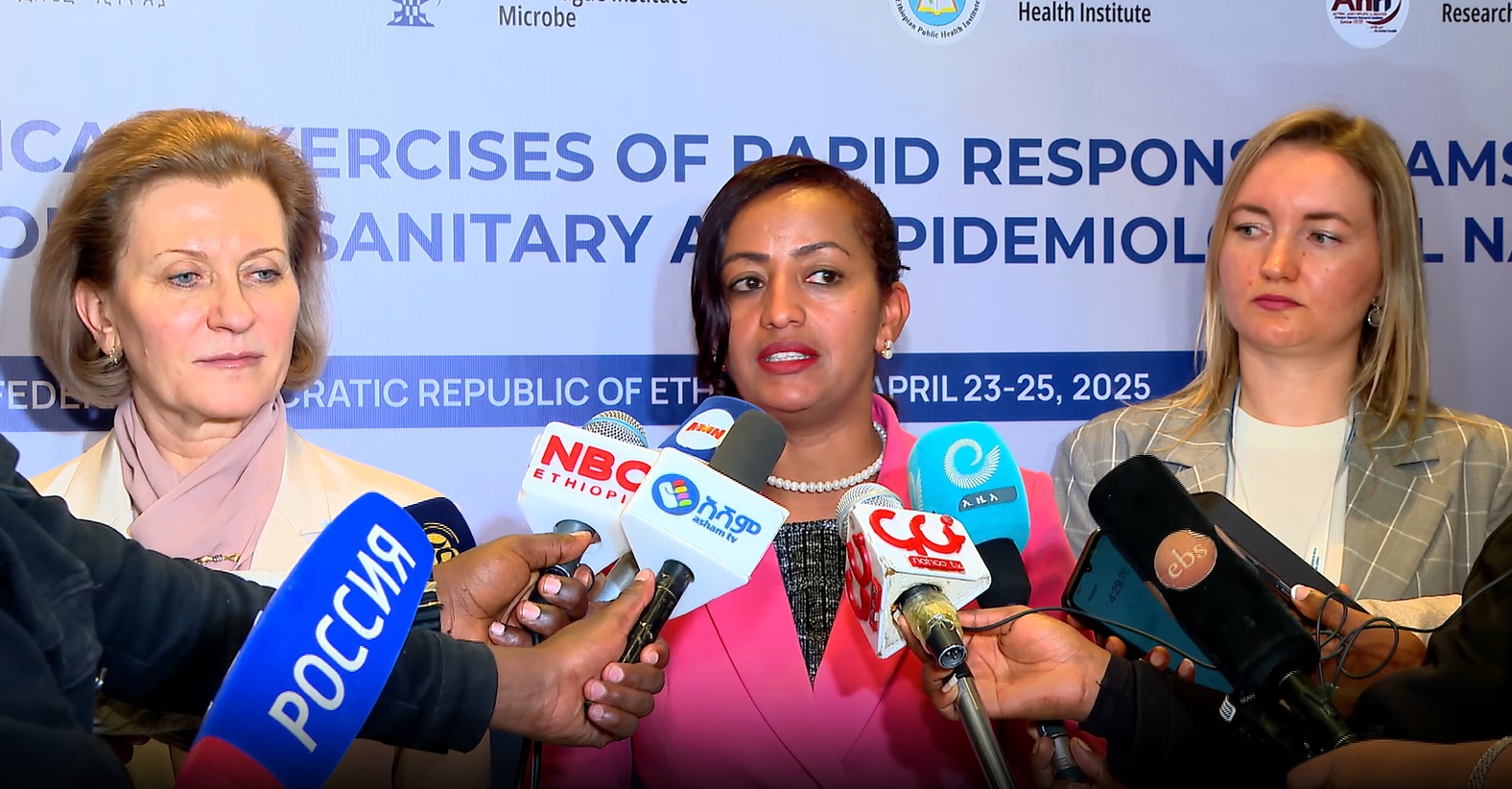
Addis Ababa, April 23, 2025 (ENA)— African nations need to forge their disease prevention and control capabilities by investing in modern laboratory infrastructure and skilled health workforce, Minister of Health Dr. Mekdes Daba stressed.
During the inauguration of the initial Russia-Africa Sanitation and Emergency Rapid Response Team workshop in Addis Ababa, Health Minister Mekdes highlighted the importance of enhancing Africa’s capability to respond publicly to health emergencies.
The three-day workshop gathered specialists from 15 African countries, such as Ethiopia, to boost their capacity for swift responses and evidence-driven services.
As part of a collaborative effort to modernize Ethiopia's health infrastructure, the modern mobile laboratory with the capacity to diagnose over 300 diseases was handed over to the ministry today.
The Minister of Health Receiving the laboratory from Anna Y. Popova, Head of the Russian Federal Service for Surveillance on Consumer Rights Protection and Human Wellbeing, Dr. Mekdes emphasized the commitment of both nations to deepening their partnership in various health-related areas.
The minister stated that the mobile laboratory will be instrumental in providing vital health services both within Ethiopia and in neighboring countries. "This facility will not only serve Ethiopia but also neighboring countries, enhancing regional health cooperation and epidemic readiness," she emphasized.
Moreover, she highlighted the vital function of Ethiopia’s current health research organizations like the Ethiopian Public Health Institute and the Armauer Hansen Research Institute. She underscored the necessity of enhancing and enlarging these establishments to reinforce initiatives aimed at preventing diseases.
She highlighted that Africa hosts crucial health research organizations such as the Africa CDC, stressing the importance of building upon these foundations. She called for increasing laboratory personnel and utilizing robust partnerships, similar to the one with Russia, to safeguard public welfare.
Dr. Mekdes additionally pointed out that Ethiopia presently has 33 operating laboratories with plans to expand this total to 40. This expansion would enhance the nation’s ability to monitor and respond to diseases at both national and regional levels.
As she emphasized, Russian support differs from conventional aid; it goes beyond simple assistance and aims at promoting enduring self-sufficiency and strength.
Anna Y. Popova, who leads Russia’s Federal Service for the Protection of Consumer Rights and Human Wellbeing, praised the collective strength and solidarity demonstrated by the Ethiopian and Russian peoples.
Just as Ethiopians stood strong for its unity and against past invasions, today’s fight is against disease. This partnership ensures Africans can protect themselves sustainably, she stated.
Popova additionally highlighted that Russia's strategy focuses on long-term cooperation and building capabilities instead of promoting dependence. She stressed, "Our aim is to assist African countries in becoming self-reliant when confronting potential health crises."
Salma Malika, the Deputy Chairperson of the African Union Commission, praised the Russian proposal as an important move toward enhancing the continent’s health security.
She emphasized that Africa's health issues should be addressed with African solutions. Nonetheless, achieving this requires collaboration rather than working alone. It necessitates partnering strategically with countries such as Russia and improving coordination betweenAUmember states.
She called for increased funding for healthcare organizations like the Africa Centre for Disease Control and Prevention, along with setting up strong financial systems across the continent to guarantee lasting improvements in public health.
We deeply appreciate Russia’s strategic partnership in supporting the African Union’s Agenda 2063, a vision for a healthy, self-reliant, and prosperous Africa, she concluded.
Russian Ambassador to Ethiopia, Evgeny Terekhin, highlighted the essential nature of cooperation when tackling health emergencies.
Given the worldwide reaction to COVID-19, the ambassador emphasized the importance of drawing lessons from this situation.
The COVID-19 pandemic vividly highlighted the impacts of acting alone. Africa needs to work together both within itself and with allies to build strength and protect its citizens, he emphasized.
The Ambassador reaffirmed Russia’s commitment to strengthening Africa’s public health systems and fostering future generations to more effectively address healthcare issues.
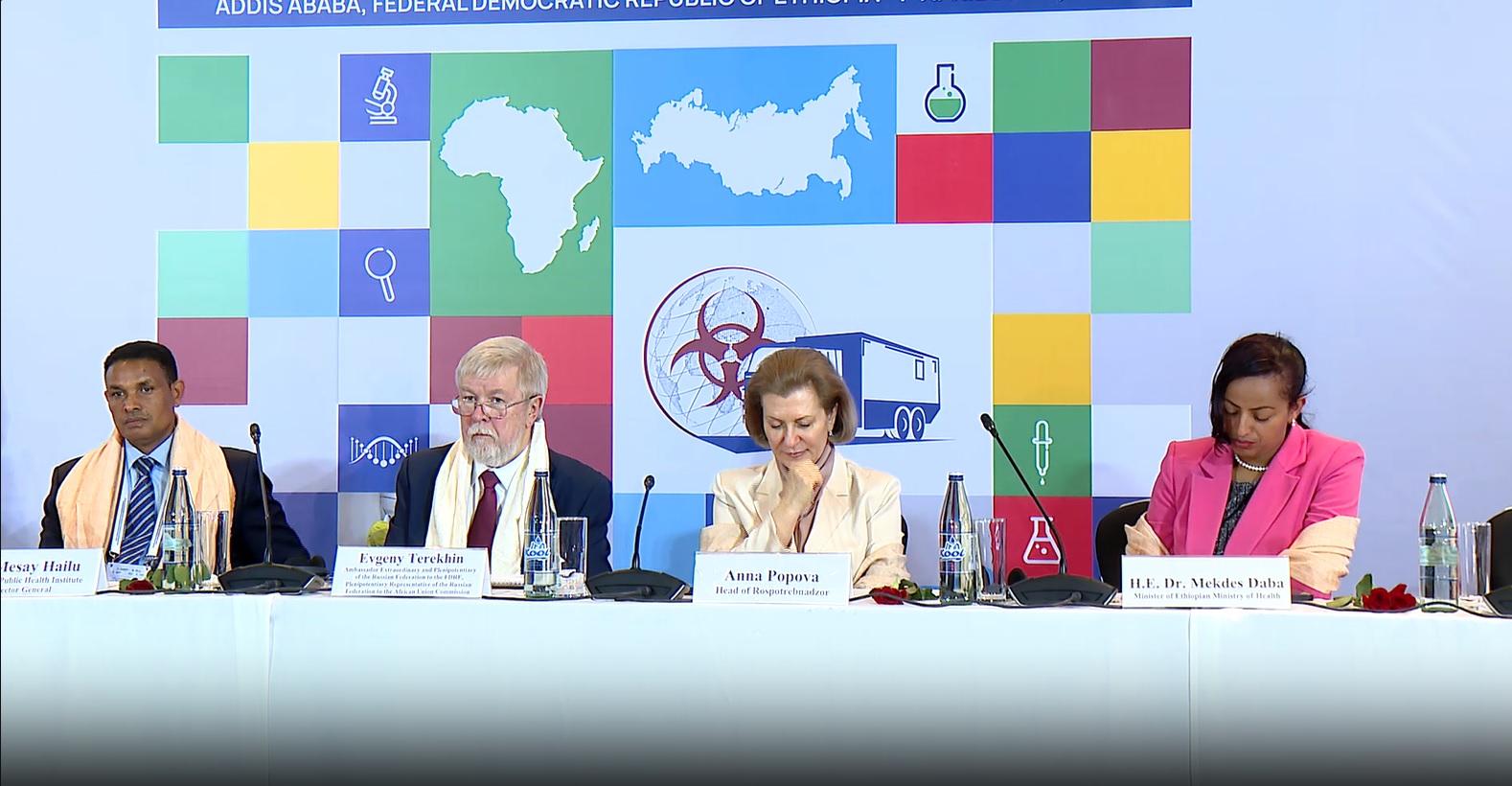 Provided by Syndigate Media Inc. (
Provided by Syndigate Media Inc. (
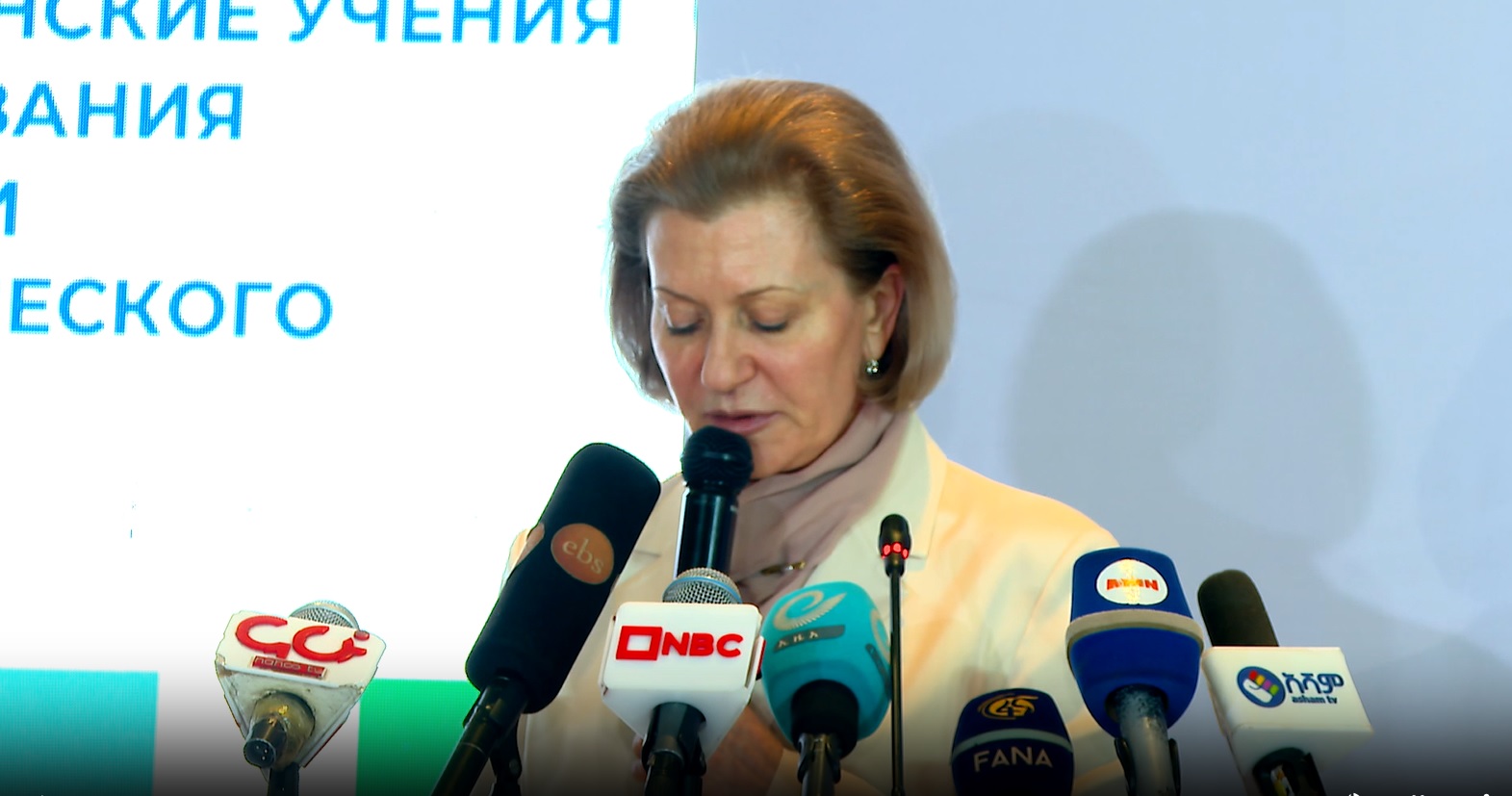 Syndigate.info
Syndigate.info
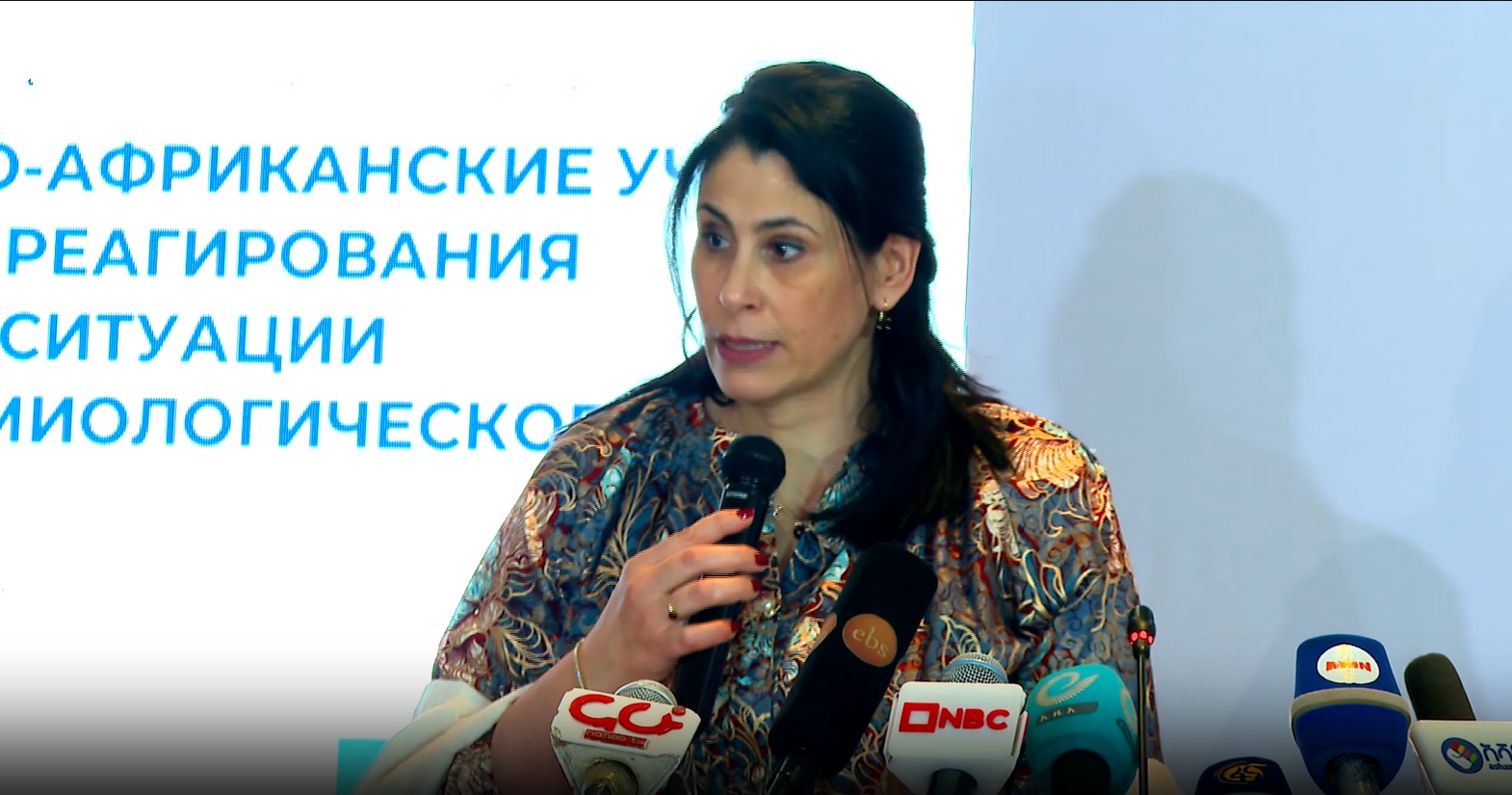 ).
).
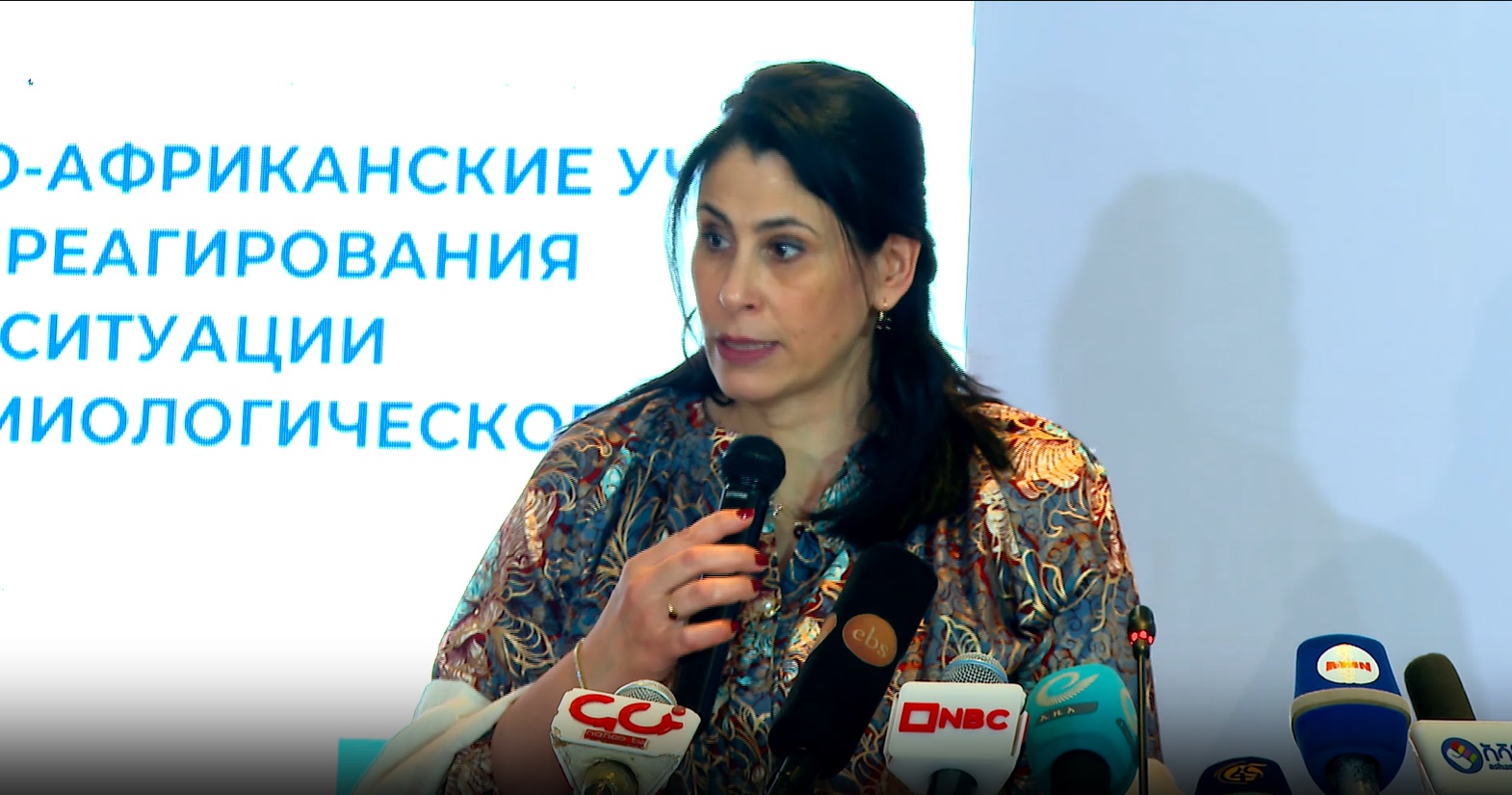


%20(1024%20x%201024%20piksel)%20(1).png)
%20(1024%20x%201024%20piksel)%20(5).png)

%20(1024%20x%201024%20piksel)%20(1).png)
0 Comments